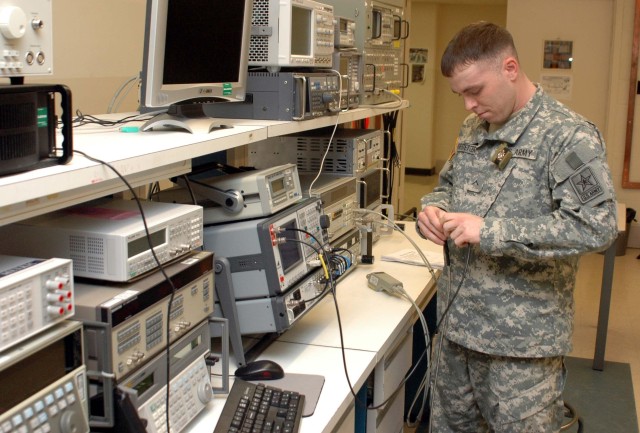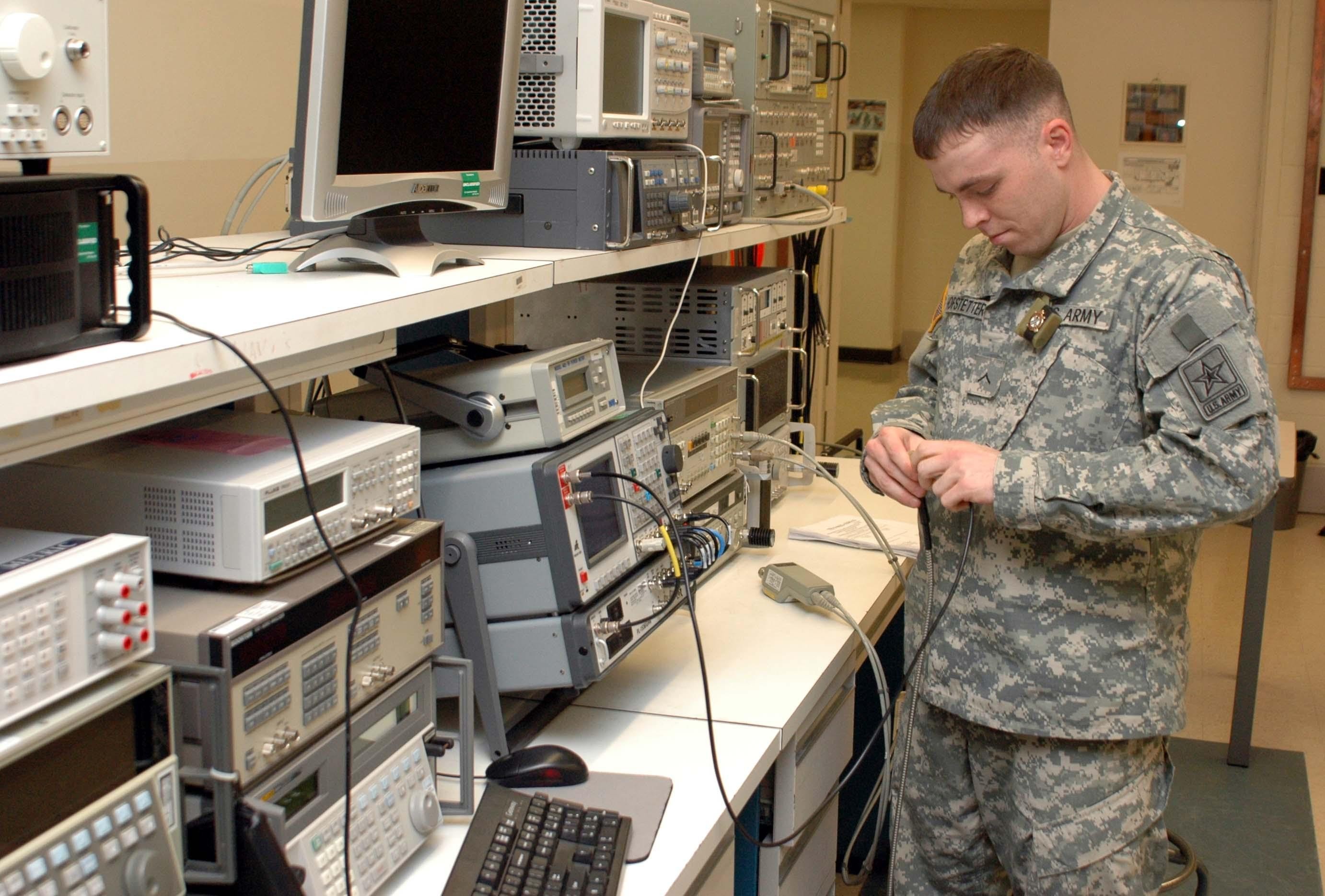Every military occupation specialty plays a role in helping the Army in its missions. But what if the Army couldn't move' What if its radios couldn't communicate' What would the Army do'
That's where these guys come in: the Soldiers preparing to become the latest batch of 94H, otherwise known as Test Measurement and Diagnostic Equipment support specialists, currently training with 832nd Ordnance Battalion at Toftoy Hall.
These Soldiers will ensure all the equipment used in the Army properly functions and if not, then make it function. While stationed at Redstone, they undergo rigorous training to become experts in their skill.
"We're teaching these (Soldiers) how to maintain and calibrate the test equipment that is used everywhere in the Army," said Brandon Kitchens, an instructor for the 94H and a former member of the Navy for 10 years.
"Everything in the Army, at some point, has to be tested, verified or calibrated to make sure it works properly," he said.
"It could be anything from radios to radar or even laser bomb guidance. Everything has to be tested so we're giving these guys the tools they need to maintain any equipment that needs to be repaired.
"By the time they leave this course, they will be expected to be experts on all the equipment we've specifically trained them on but also on new equipment that might come down the line. We're giving them the ability to adapt what they know to something new that they might not have ever seen before. They will be given a manual and an item and they will be expected to operate it, maintain it, calibrate it, and oftentime, teach the customer how to operate it."
It's essential that these Soldiers become experts. If they cannot achieve their mission, the Army would be in jeopardy.
"Without this MOS, the Army would stop," said Ted Stroup, an instructor who served 22 years in the Army. "If (our Soldiers) don't keep the Army's equipment (running) than the missiles won't be going where they're supposed to be going and 'birds' (helicopters) can't fly. This MOS is a very vital entity to the Army."
Pvts. Vance Okihara, Sonny Hofstetter and Christopher King, all from Bravo Company, are the only three trainees in their class, making the training environment close and personal. With different skills and backgrounds, this family seems to work.
"I had some experience in electronics, so when I talked with my recruiter I asked for something really in-depth electronics and this MOS was on top of the list," Okihara said. "I went to school for electrical engineering and I drifted a little in my jobs, but I really wanted something that would directly translate training into a career. I knew the Army was my choice and that's how I ended up with this MOS."
"This job was also appealing because it offered the chance to further my education while training and working in the Army," Hofstetter said. "This MOS training is recognized by some colleges and this will go towards getting an associates degree. You can't really beat that."
"This training really differs from my education," Okihara said. "My education was all theory; it was all about learning how things work. Where this MOS is very practical and cuts out a lot of the theory and goes straight into what the equipment does. This is what needs to get done and then how to do it. This MOS has taught me the practical side of electronics."
"Sometimes the job can be a little tedious," Hofstetter said. "You come across some pretty thick manuals and there's a lot of reading involved. But other than that, the job takes patience and time, but it's rewarding. After a while, it just starts coming to you and everything gets easier."
Although they see the benefits of their labor, others in the Army might not.
"This MOS is behind the scenes. If these Soldiers do their job correctly, no one will really know what they did," Kitchens said. "But if they don't perform the way they are supposed to or the equipment doesn't perform the way it's supposed to, that's when people will start noticing. That's the nature of this job. If you do it right, nobody knows you're there. "
"(If deployed) I believe our reward for a job-well-done will be other (Soldiers in our field) seeing what we've accomplished," Hofstetter said. "No one thinks about how the Army moves, they just expect it to. We really are a behind-the-scenes MOS and that's really the way we like it.
"Just knowing we will be making a difference in how the Army runs, it's encouraging. It motivates us to finish our training and to get out there. We will have an effect on the Army and that's a good feeling."
Okihara, Hofstetter and King are next headed to Korea. It is unknown whether or not they will be in the same unit.
"We've gotten to know each other really well and we also hang out outside of military time," Hofstetter said. "Calibrators in general, all the 94H, we kind of segregate ourselves. Not in a negative manner, but we have a thickness to us that is a bond. It's the same bond with our instructors as well; (all of whom) are also calibrators."


Social Sharing